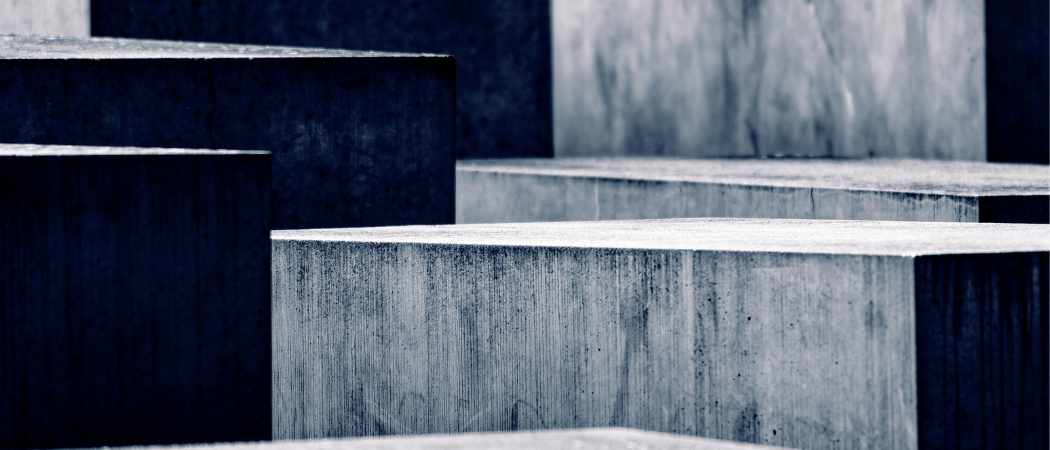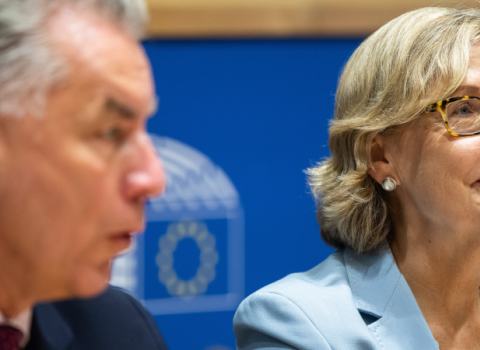The European Holocaust Research Infrastructure’s new legal status is expected to spur research cooperation and archive development

The Memorial to the Murdered Jews of Europe in Berlin, Germany. Photo credits: Alex Kulikov / Unsplash
The European Holocaust Research Infrastructure (EHRI) has been granted the status of a European Research Infrastructure Consortium by the European Commission. This will give it greater funding stability and increased visibility, which the EHRI hopes will encourage further research on a national level and widen access to EU networks and funding calls.
Founded in 2010, the EHRI promotes Holocaust research and remembrance, with a particular emphasis on connecting archives.
“The key challenge facing Holocaust researchers is that relevant documentation is dispersed across thousands of archives in Europe and beyond,” Reto Speck, one of the EHRI’s directors, said.
According to Dan Michman, head of the International Institute for Holocaust Research at the Yad Vashem memorial in Jerusalem, the EHRI’s new legal status will foster collaboration among countries and organisations, and make it easier for researchers to connect with databases and institutions.
The EHRI has received EU funding since its creation, but this was made up of successive four-year project grants. Its new consortium status means that its core funding will come from its ten participating member states and observers, giving it greater stability.
Under these new arrangements its annual budget will be around €1.2 million, which it plans to supplement with grant funding from other sources, including EU research programmes.
Efforts are also underway to expand the membership, with Belgium set to join in the near future.
Nodes and digitisation
The EHRI expects to further strengthen its network by establishing national nodes in each of its member countries. In Germany, for example, this will be the Centre for Holocaust Studies at the Leibniz Institute for Contemporary History.
It is also considering regional groupings to better integrate and involve countries that are at the margins of the EU, or partner institutions from the former Eastern bloc.
Archive digitisation is a significant theme for the EHRI, improving access to Holocaust-related documents scattered across the world and developing online services such as topic modelling for exploring large collections of texts and entity matching for finding location coordinates.
“The digital transformation of Holocaust research and documentation increasingly allows us to analyse archives at an unprecedented scale that far surpasses what researchers using traditional, analogue methods could ever hope to achieve,” Speck said.
This will also open up possibilities for tackling entirely new research problems, in particular those that cross into other disciplines, he added. “By bringing together experts in Holocaust research and documentation with digital humanists and computer scientists, the EHRI provides the crucial networks that can drive forward such methodological innovations.”
Meanwhile, as the survivor generation gradually passes on, it is becoming even more urgent to make new archives, including archives of recorded testimonies, that are easily accessible and optimally managed.
“There will soon come a time when nobody with direct experience will be able to testify,” Speck pointed out. “The Holocaust will become history, and we have to make sure that it is a history that remains relevant in the minds of the younger generation.”
Achieving consortium status is also seen as a valuable endorsement of the EHRI’s role in fighting antisemitism and Holocaust denial.
“At a time when Holocaust remembrance is threatened by historical distortion or misinformation, scientific research and Holocaust education is of enormous importance,” a spokesperson for the Austrian Federal Ministry of Education, Science and Research said.
Meanwhile, the German Federal Ministry of Education and Research expects the EHRI’s new legal status to boost the creation of educational material, and so to support the collective memory of the Holocaust.
The EHRI consortium will be formally launched on January 26 at the POLIN Museum of the History of Polish Jews in Warsaw.





 A unique international forum for public research organisations and companies to connect their external engagement with strategic interests around their R&D system.
A unique international forum for public research organisations and companies to connect their external engagement with strategic interests around their R&D system.